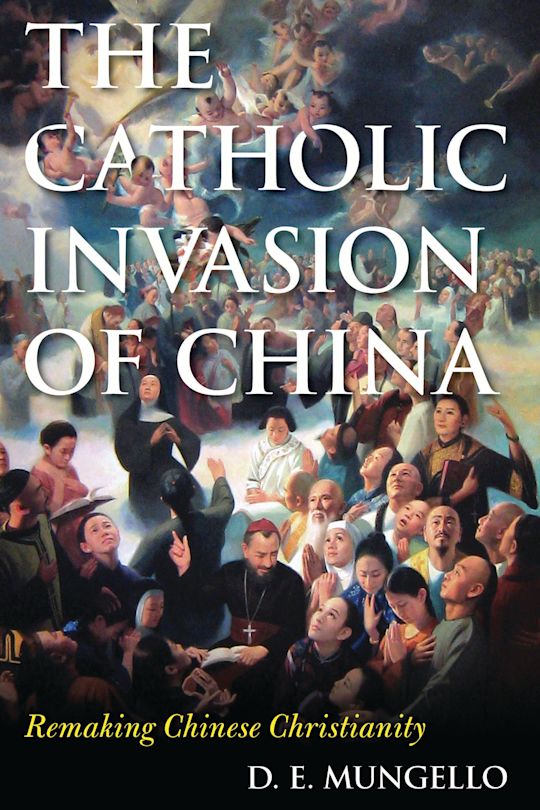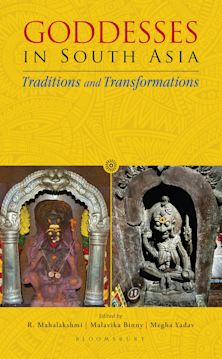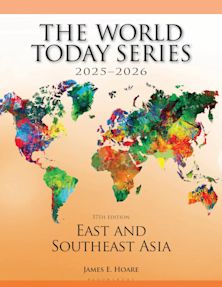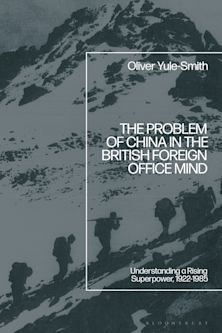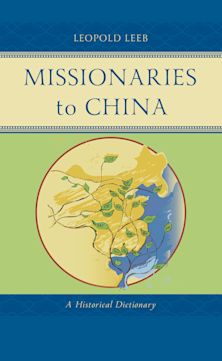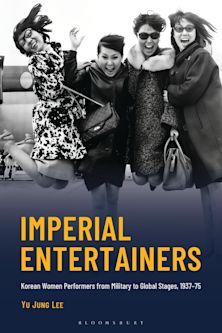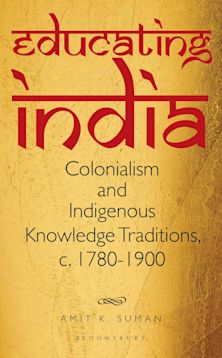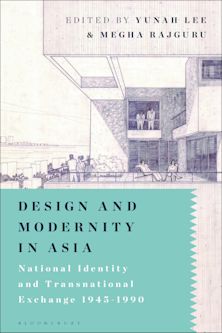- Home
- ACADEMIC
- History
- Asian History
- The Catholic Invasion of China
You must sign in to add this item to your wishlist. Please sign in or create an account
Description
The culmination of D. E. Mungello’s forty years of study on Sino-Western history, this book provides a compelling and nuanced history of Roman Catholicism in modern China. As the author vividly shows, when China declined into a two-century cycle of poverty, powerlessness, and humiliation, the attitudes of Catholic missionaries became less accommodating than their famous Jesuit predecessors. He argues that “invasion” accurately characterizes the dominant attitude of Catholic missionaries (especially the French Jesuits) in their attempt to introduce Western religion and culture into China during the nineteenth and early twentieth century. Elements of this attitude lingered until the end of the last century, when many Chinese felt that Pope John Paul II’s canonization of 120 martyrs reflected the imposition of an imperialist mentality. In this important work, Mungello corrects a major misreading of modern Chinese history by arguing that the growth of an indigenous Catholic church in the twentieth century transformed the negative aspects of the “invasion” into a positive Chinese religious force.
Table of Contents
Maps
Chronology of Events in the Catholic Invasion of China
Acknowledgments
Chapter One:Catholicism and Western Imperialism in China
Chapter Two:Spiritual Domination by European Catholics in Nineteenth-Century China
Chapter Three:European Resistance to the Emergence of an Indigenous Catholic Church
Chapter Four:Love and Hysteria in Catholic Orphanages in China
Chapter Five:Sexual Domination by Catholic Priests in China
Chapter Six:The Misreading of the Missionary “Debacle” in China
Appendix A: List of the 120 Martyrs in China Canonized by John Paul II in 2000
Appendix B: Chinese Character Glossary
Notes
Bibliography
Index
About the Author
Product details
| Published | 01 Jul 2015 |
|---|---|
| Format | Ebook (Epub & Mobi) |
| Edition | 1st |
| Extent | 194 |
| ISBN | 9781442250505 |
| Imprint | Rowman & Littlefield |
| Illustrations | 6 b/w illustrations; 4 b/w photos; 4 maps |
| Publisher | Bloomsbury Publishing |
About the contributors
Reviews
-
The book is a fascinating account of Chinese Catholicism. The traditional view saw that history as an appendage of Western imperialism. M. acknowledges the colonial aspects, but he takes the long view to argue that the 'invasion' contributed to the transformation of a mission church into an indigenous expression of Catholicism, now growing into the millions, enriching both the Chinese church and the church universal.
Theological Studies
-
[Mungello] presents a nuanced argument about how the modern history of Catholicism in China (that is, from 1800) should be evaluated. Although he is critical of an earlier generation of Western interpretations of Catholic missions for judging the whole effort a failure, he readily acknowledges the errors and damages incurred, as suggested by his use of invasion in the title. From the beginning, however, he states his position that the ultimate achievement of an indigenous form of Catholicism, after centuries of European local management, was more important than the deleterious short-term effects of ‘this invasion’. He pursues this position through a series of essays on selected aspects of the modern history of the Chinese Catholic Church…. [H]e emphasizes the positive features of the experience, notably the long-term transformation of a mission church into an indigenous religion, enriching Chinese culture and making Catholicism more universal. He anticipates the election of a Chinese pope.
The Catholic Historical Review
-
The Catholic Invasion of China continues [Mungello’s] orientation toward the recent past while returning to his intellectual roots in the history of Christianity.... The best bonus is a final historiographical overview.... Mungello speaks of reciprocal transformation, not only the Christian strengthening of China, but even the Chinese strengthening of Christianity. Mungello’s approach locates the invasion’s great success in making Chinese Christianity Chinese.
American Historical Review
-
This book delivers a challenging account of events and a subtle analysis of socio-cultural currents in Sino-Christian interaction for the period subsequent to the Jesuits’ reentry into China in the first half of the 19th century. . . . [Mungello] concludes with a fair (and hope-filled) assessment of the mixed results produced by the Catholic mission, which, bearing the freight of secular force on its back, ushered in a sustainable indigenising ethos among its Chinese faithful, but seems to have bowed out before a satisfactory resolution to the split between the Official and the Underground Church could be reached.
The Heythrop Journal
-
The Catholic Invasion of China ... contains first-rate research. Mungello highlights the agency of Chinese believers from the mid-nineteenth century onwards, and shows how their initiative has been central to forging a truly Chinese Catholic church (or perhaps churches). The book is therefore a welcome contribution to scholarship in both China and the West over the last few decades that has emphasized the compatibility of Christianity with Chinese culture, while pursuing a deeper understanding of how that relationship has evolved. Finally, the cover illustration is truly sumptuous, culturally significant, and just about warrants purchase of the book on its own.
Journal of Chinese Religions
-
Mungello’s monograph is a meditation on one central theme, namely the perception of the Catholic church in China today, in particular by the country’s Communist authorities, as well the press and the educational system under their direct aegis. . . . Rather than defending the missionaries as pure emissaries of peaceful tidings, Mungello depicts the conflicting realities of their spiritual, denominational (and therefore political), cultural (hence political), economic (therefore political) and diplomatic (and thus overtly political) roles. In brief, the intended function of the Catholic missionaries, namely the transmission of a spiritual alternative to the complexity of faiths in later imperial China, was buried in the public perception by the overriding ‘political’ interpretation of their mission. Rather than sacred souls serving the Lord, missionaries came to be seen as individuals with ulterior motives—sometimes regarded as idealistic, often as depraved and, by the end of the mid-20th century, collectively as being in direct service of an intrusive West. . . . In essence, David Mungello’s monograph combines the author’s chief research interests—namely the role of the Chinese clergy and church elders in periods of state-induced hardship, as well as the behaviour and perception of marginal groups, such as homosexuals, children and deviant priests—in an attempt to reinterpret the crucial century between 1840 and 1950 as part of China’s historical experience. The recent official reactions clearly show that this Catholic invasion is anything but history.
China Quarterly









